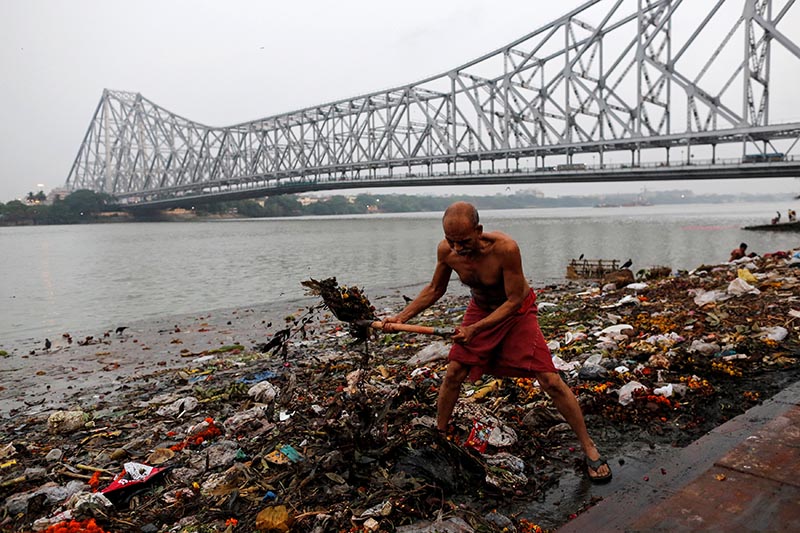Dying "Mother Ganga": India's holy river succumbs to pollution
DEVPRAYAG/VARANASI/SAGAR ISLAND: India's holy Ganges begins as a crystal clear river high in the icy Himalayas but pollution and excessive usage transforms it into toxic sludge on its journey through burgeoning cities, industrial hubs and past millions of devotees.
Worshipped by a billion Hindus and a water source for 400 million, "Mother Ganga" is dying, despite decades of government efforts to save it.
Lokesh Sharma, a 19-year-old priest in Devprayag, a small hill town where two rivers converge to form the Ganges, is his family's fourth generation to lead riverbank prayers.
"I never thought of going somewhere else and settling. Devprayag is a heaven for me. I feel blessed to be born next to Mother Ganges," Sharma said, as chanting priests and devotees, some bottling the water, dunk themselves in the fast-flowing river.
Thousands of Indians immerse themselves and idols of their gods every day, believing a dip in the Ganges absolves a lifetime of sins. People drink the water and use it for crops.
But the pristine waters soon becomes a distant memory as the 2,525 km-long (1,570 mile) Ganges snakes its way down to the densely populated plains of north India, where too much water is sucked out to maintain a healthy flow.
Sliding under bridges in the industrial city of Kanpur, the water's colour turns dark grey.
Industrial waste and sewage pour in from open drains, as clouds of foam float on its surface.
At one stretch, the river turns red.
Nearby, tannery workers haul chemical-soaked buffalo hides into huge drums. The filthy run-off is dumped in the river.
Prime Minister Narendra Modi's government has pledged to build more treatment plants and move more than 400 tanneries away from the river, but his $3 billion clean-up plan is badly behind schedule.
Less than a quarter of an estimated 4,800 million litres of sewage that flow daily into the river from main towns and cities is treated.
POLLUTION-FREE PRAYERS
The sorry state of the Ganges is most keenly felt in Varanasi, the ancient and most holy of cities for Hindus.
Religious students practise yoga, pilgrims seek spiritual purification and families cremate their dead by the water's edge, scattering ashes so that souls go to heaven and escape the cycle of rebirth.
Along the bathing ghats, prayers invoking followers to keep the Ganges clean fill the hot evening air.
"I remember earlier the water was very clean and we could drink it," said 58-year-old boatman Anil Sahni. "Now you can't even bathe in it."
As the river widens it curves southwards, towards the Bay of Bengal, passing thousands more villages and swelling cities.
In the 14-million strong metropolis of Kolkata, people bathe and brush their teeth next to towering mounds of rubbish. On the outskirts, brick kilns and factories line the river banks.
Downstream, a packed ferry sets off for Sagar Island, or Ganga Sagar, a magnet for Hindu pilgrims that marks the point where the Ganges meets the sea.
"I feel sad about what's happening around us. The Ganges is getting dirty day by day but nobody cares. Not even its children," said 66-year-old priest Ashok Kumar in Mirzapur, a riverside carpet and brass ware hub.
"The Ganges is our mother. There won't be any future if she dies."






